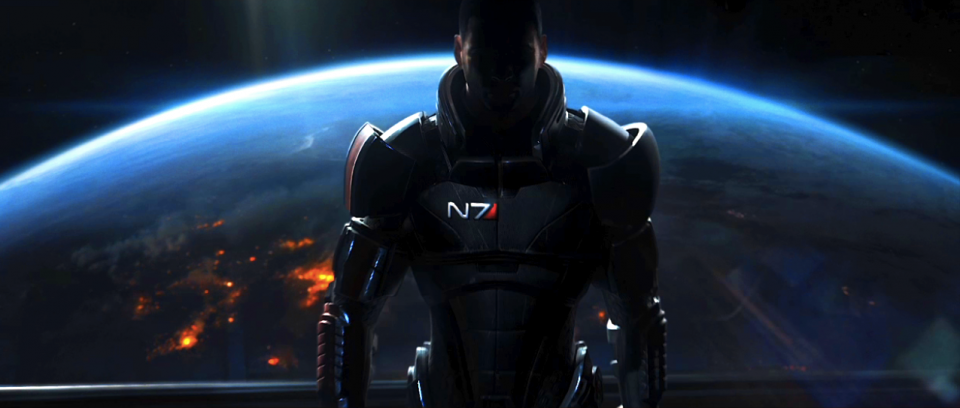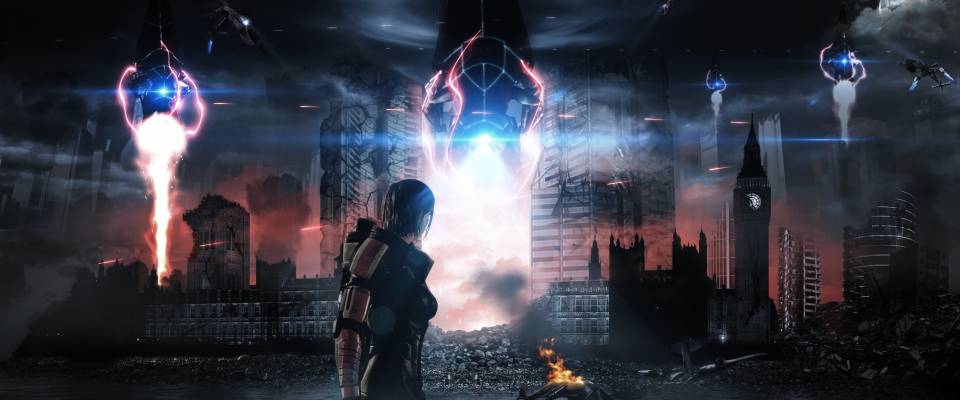
(Note: This article does not contain spoilers for the endings of Mass Effect 3, Lost or The Sopranos).
Suddenly, a bright light appears, and it’s all over. After years of investment and hours of discussion with friends, just a few minutes of credits later, it’s like it never happened.
Whether it’s putting the the Island to rest during the series finale of Lost or witnessing the final moments of Commander Shepard’s fight against the Reapers in Mass Effect 3, endings have seemingly impossible tasks.
Mass Effect 3 has only been out for two weeks. Most players haven’t seen how the trilogy ends, but players who've already made it back to Earth have awfully strong opinions about how BioWare chose to take a bow.
BioWare chose to break its silence yesterday in a blog post by BioWare co-founder Ray Muzyka. The Mass Effect 3 team is listening to player feedback, Muzyka explained, and more details would be available in April. At no point did Muzyka announce the ending to Mass Effect 3 would see alterations, and Muzyka contends BioWare will maintain the “integrity of the original story while addressing the fan feedback.”

“Endings often just can’t win,” said Entertainment Weekly senior writer, game player and once regular Lost columnist Jeff Jensen to me recently. “Most screenwriters will tell you the hardest part of any movie, any story to tell, is just the end. It’s the thing that changes the most, it’s the endings that are the most fought over among collaborators. They’re the things that are just the hardest to land.”
Retake Mass Effect is a petition by fans asking BioWare to provide alternate endings to Mass Effect 3 that, in their eyes, better represents the choices made by players across all three games, explains the final, twisty, head-scratching moments, includes a “heroic” finish in line with the series’ themes of success against incredible odds, and much more. To make their point, Retake Mass Effect has raised $77,514 for the Child’s Play charity.
“We would like to dispel the perception that we are angry or entitled,” reads a statement on Retake Mass Effect. “We simply wish to express our hope that there could be a different direction for a series we have all grown to love.”
Other fans, like Spike Murphy in California, went a step further. Murphy filed a false advertising complaint with the Federal Trade Commission (FTC) and Better Business Bureau (BBB). You can read Murphy’s BBB filing here, in which he contends BioWare and Electronic Arts mislead the public about what would be in Mass Effect 3’s ending.
In his complaint, Murphy pointed to comments from BioWare designers, writers and producers about how player choices would directly impact the ending in very nuanced ways, creatures like the Rachni would play a huge role, the endings would not be as simple as A, B, C, and big mysteries would finally be answered.
Many of Murphy's arguments fall into semantic buckets, however, which makes his case difficult to make.
The response to Murphy’s decision by other fans was not completely supportive. Members of Retake Mass Effect pushed back on Murphy, painting his move as childish and over the line, but Murphy defended his decision.
“I figured this would be a big way to keep some pressure on BioWare and EA to actually respond to the fan base and give them a real response or explanation for what happened,” he told me.
Murphy, who works in advertising and political outreach, admitted to not expecting much to actually happen because of the filings--it’s a PR move on his part to push BioWare towards addressing his feelings about the ending.
“My hope is that we see some kind of change or addition to the ending that explains it,” he said. “The first step would certainly be an acknowledgement that this ending was not the ending that they said they were going to give us. That legitimizes the complaints.”
It’s unclear if BioWare’s statement yesterday accomplishes that, but Murphy said it felt “pretty good.”

Jensen, who’s finished the first two games and is currently working through Mass Effect 3, has seen audience reactions like this many times before while covering TV and film. Jensen had a weekly column at Entertainment Weekly analyzing each new episode of Lost, including its polarizing finale. The ending to Lost prompted an intense dialogue, which left one batch of fans satisfied, another batch of fans still yelling at the showrunners through Twitter.
Lost co-creator Damon Lindelof, who helped write Ridley Scott's upcoming Prometheus, even commented about Mass Effect 3 on Twitter, a humorous tip of the hat to fans, the reaction and the developers at BioWare.
“In entertainment, and especially in the mediums of television and video games, they are ultimately service industries,” said Jensen. “Which is to say the customer is always right, and that’s going to be frustrating for storytellers to hear because ultimately you exist, your product exists, at the whims and desire of your consumer base. If they’re happy, if they’re unhappy, they’re right. Even if they’re wrong, they’re right. You have to deal with it.”
Whether it’s happening passively on TV or actively through a video game, endings to massive epics become about catharsis, a deeply personal release from everything that’s built up over the time you’ve spent inside this narrative.
With Lost, I spent every week watching that show with friends. We laughed, cried, and yelled at the show for years. I watched the series finale with the same friends, and we mostly cried. That moment with Jack? With his...? Man.
“Here, we really do see analogs to things like Lost or The Sopranos,” said Jensen, “where a fanbase that’s large and rabid and loyal and passionate and really, really invested--they’re not only getting the final game or final episode, the end of a story, they’re getting the door slammed on a huge part of their lives, a significant thing in their lives. To that end, an ending, then, must give you something more.”
I’ve been unable to fill Lost’s void after it went off the air, and maybe I never will. While I sympathize with those who didn’t find it to have the necessary amount of catharsis, I don’t agree with them. Though I cannot muster the same passion about Mass Effect 3, I get it.
“There seems to be a similarity here with Mass Effect 3,” said Jensen, “with a fanbase that has gone through these games and come to the end, and they want the full meal catharsis--they want everything. They want a heroic end, or the possibility of a heroic end. They want an emotional sendoff, they want resolution of certain mysteries, and they all want it to be coherent and skillfully done. It sounds like Mass Effect just didn’t nail that landing.”
The Sopranos and Lost's endings both caused waves. It’s an important moment for a game to cause the same level of ire, resentment and discussion, even if much of it seems negative at the moment. As Jensen pointed out, most people came around to appreciating what The Sopranos creator David Chase tried, and maybe the same thing will happen to Mass Effect 3 one day.
“I think Mass Effect, as a franchise, these three games taken together, I just can’t see how it’s not regarded as anything less than a landmark,” said Jensen. “There’s so many things to enjoy about these games and this world and the creative accomplishment of this series than just those final moments.”
For many, though, those final moments were everything.